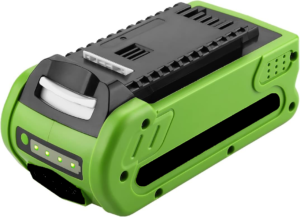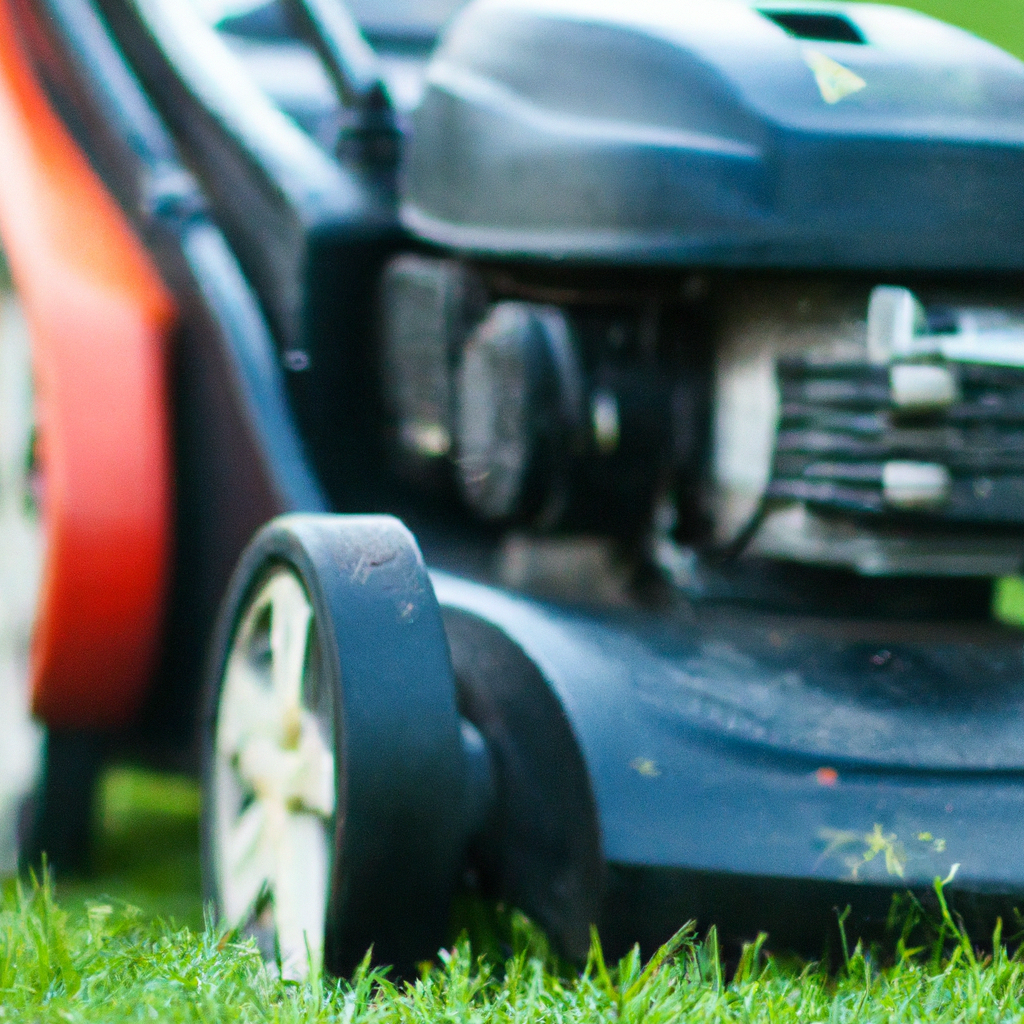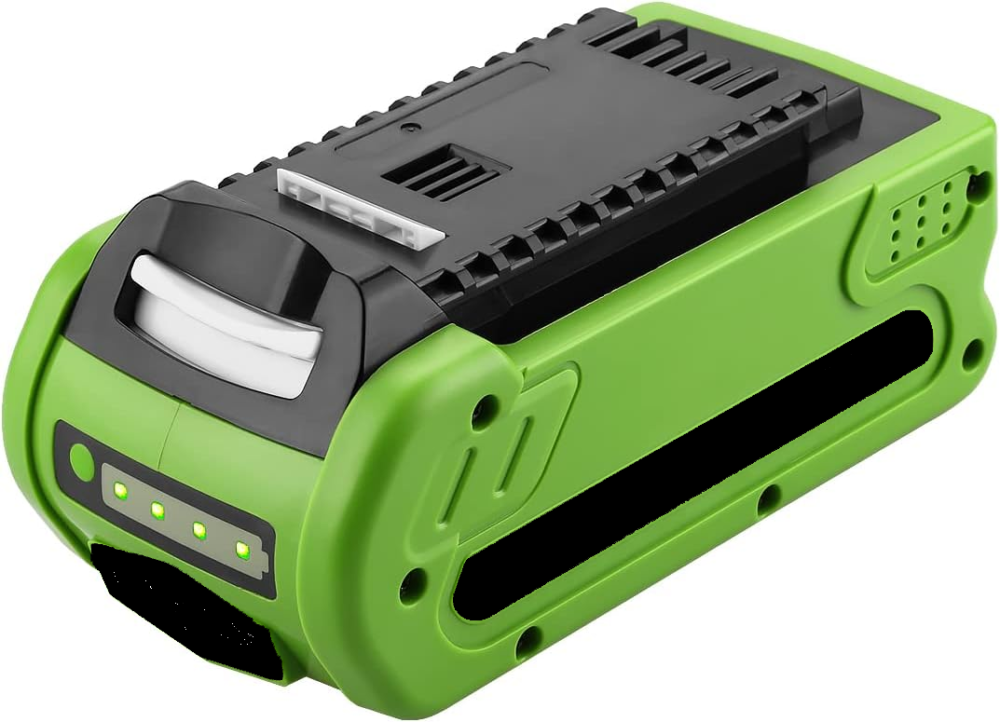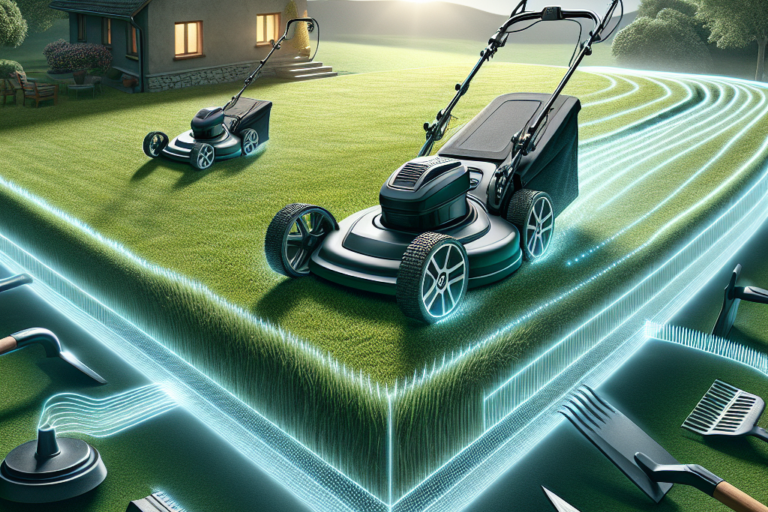Picture this: it’s a sunny Saturday morning, and you’re ready to tackle the overgrown grass in your backyard. As you reach for your trusty cordless electric mower, a small thought lingers in the back of your mind – how long will the battery last? We’ve all been there, wondering if we’ll be able to finish the job before the battery dies. Well, fear not, because in this article, we’ll explore just how long the battery of a cordless electric mower can keep you buzzing around your lawn. Get ready to discover the power that lies within your mower’s battery!
Factors Affecting Battery Life
Battery capacity
The capacity of a battery refers to the amount of energy it can store. In general, the higher the battery capacity, the longer the battery life. This means that a cordless electric mower with a higher battery capacity will be able to run for a longer period of time before needing to be recharged. It is important to consider the battery capacity when purchasing a cordless electric mower, especially if you have a larger lawn or need to mow for an extended period of time.
Mower usage
Another factor that can affect the battery life of a cordless electric mower is how frequently and for how long the mower is used. If you are mowing a large lawn or mowing frequently, the battery will be drained more quickly compared to less frequent or shorter mowing sessions. It is important to consider your mowing habits and choose a cordless electric mower with a battery life that aligns with your needs.
Terrain and grass type
The terrain and grass type can also impact the battery life of a cordless electric mower. If you have a lawn with rough terrain or thick, dense grass, the mower may require more power to effectively cut the grass. This increased power consumption can shorten the battery life. On the other hand, if you have a flat lawn with thin grass, the battery may last longer. It is essential to consider the conditions of your lawn when choosing a cordless electric mower and battery.
Weather conditions
Weather conditions can also play a role in the battery life of a cordless electric mower. Extreme temperatures, both hot and cold, can impact the performance and lifespan of the battery. In very hot temperatures, the battery may overheat and lose its capacity to hold a charge. Similarly, in very cold temperatures, the battery may become less efficient and have a reduced overall capacity. It is important to store and use the mower and its battery in suitable environments to optimize its lifespan.
Battery Types
Lead-acid batteries
Lead-acid batteries have been around for a long time and are commonly used in various applications, including cordless electric mowers. They are known for their low cost and high durability. However, lead-acid batteries tend to be heavy and have a limited energy density, resulting in shorter battery life compared to other types.
Nickel-cadmium (NiCd) batteries
NiCd batteries have been widely used in cordless power tools, including electric mowers, due to their ability to deliver consistent power. They have a good lifespan and are more affordable than some other battery types. However, NiCd batteries suffer from the “memory effect,” where they lose capacity if not fully discharged before recharging, reducing their overall battery life.
Nickel-metal hydride (NiMH) batteries
NiMH batteries offer a higher energy density compared to NiCd batteries, resulting in longer battery life. They are also more environmentally friendly as they do not contain toxic cadmium. However, NiMH batteries can still suffer from the memory effect, and they tend to have a higher self-discharge rate, meaning they lose their charge even when not in use.
Lithium-ion (Li-ion) batteries
Li-ion batteries are becoming increasingly popular in cordless electric mowers due to their high energy density, lightweight design, and longer battery life. They do not suffer from the memory effect and have a low self-discharge rate. However, Li-ion batteries are more expensive than other types and require careful handling to prevent damage or overheating.

Average Battery Lifespan
Lead-acid batteries
On average, lead-acid batteries used in cordless electric mowers have a lifespan of 2 to 3 years. However, this can vary depending on factors such as usage, maintenance, and storage conditions. Proper care and regular maintenance can help extend the lifespan of lead-acid batteries.
Nickel-cadmium (NiCd) batteries
NiCd batteries typically have a lifespan of 2 to 4 years when used in cordless electric mowers. As mentioned earlier, the memory effect can shorten their overall battery life. Discharging the battery completely before recharging can help mitigate this effect and extend the battery’s lifespan.
Nickel-metal hydride (NiMH) batteries
NiMH batteries used in cordless electric mowers generally have a lifespan of 3 to 5 years. Their longer battery life compared to NiCd batteries and higher energy density make them a popular choice among consumers. Proper charging and maintenance can help maximize their lifespan.
Lithium-ion (Li-ion) batteries
Li-ion batteries have the longest average lifespan compared to other battery types, with an expected lifespan of 5 to 7 years when used in cordless electric mowers. Their superior energy density and lack of memory effect contribute to their extended battery life. However, it is essential to follow proper charging and handling guidelines to ensure their longevity.
Tips to Extend Battery Life
Proper charging
To extend the battery life of your cordless electric mower, it is important to follow proper charging practices. Avoid overcharging the battery, as this can reduce its overall capacity. Additionally, it is recommended to charge the battery fully before using the mower and to avoid leaving the battery discharged for extended periods of time.
Battery storage
Proper storage of the battery when not in use is crucial for maintaining its lifespan. Store the battery in a cool, dry place, away from direct sunlight, extreme temperatures, and moisture. It is also important to remove the battery from the mower if it won’t be used for an extended period of time, such as during the winter season.
Maintenance and care
Regular maintenance and care can help prolong the battery life of your cordless electric mower. Keep the battery and its terminals clean and free from dirt or debris. Check for any signs of damage or corrosion and address them promptly. Following the manufacturer’s recommendations for maintenance and care can go a long way in maximizing battery lifespan.
Avoid extreme temperatures
Extreme temperatures, both hot and cold, can have a negative impact on the battery life. Avoid exposing the battery to temperatures outside of the recommended range, as this can reduce its capacity and overall performance. If you live in an area with extreme temperatures, consider storing the battery indoors during periods of extreme heat or cold.
Battery Replacement
Signs of a failing battery
Over time, the battery of your cordless electric mower may start to deteriorate. Some signs that indicate a failing battery include decreased run time, difficulty holding a charge, slower mower speed, and frequent recharging. If you notice any of these signs, it may be time to consider replacing the battery.
Choosing a replacement battery
When selecting a replacement battery for your cordless electric mower, it is important to choose one that is compatible with your mower model. Consider factors such as battery type, capacity, and voltage to ensure a proper fit. It is recommended to purchase replacement batteries from reputable manufacturers or authorized dealers to ensure quality and compatibility.
Cost of Replacement Batteries
Factors influencing cost
The cost of replacement batteries for cordless electric mowers can vary depending on several factors. Battery type, capacity, brand, and quality are some of the factors that can impact the cost. Generally, Li-ion batteries tend to be more expensive compared to lead-acid or NiCd batteries due to their higher energy density and longer lifespan. Higher-capacity batteries may also come at a higher price point.
Price comparison
Before purchasing a replacement battery, it is advisable to compare prices from different sources. Check prices from various retailers, both online and offline, to find the best deal. Additionally, consider any warranty or guarantee offered by the manufacturer or seller, as this can add value to the overall purchase.
Considerations before purchasing
While it may be tempting to choose the cheapest replacement battery option, it is important to consider other factors as well. Look for reputable brands and consider customer reviews and ratings. It is also essential to ensure that the replacement battery meets the requirements of your cordless electric mower and provides the necessary performance and compatibility.

Benefits of Cordless Electric Mowers
No fumes or emissions
One of the major advantages of cordless electric mowers is that they do not produce any fumes or emissions during operation. Unlike gas-powered mowers, which emit harmful pollutants into the environment, cordless electric mowers are environmentally friendly and contribute to cleaner air quality.
Quieter operation
Cordless electric mowers are significantly quieter compared to gas-powered mowers. This is beneficial for both the user and the surrounding environment. With reduced noise levels, you can mow your lawn without disturbing your neighbors or worrying about noise ordinances in your area.
Ease of use
Cordless electric mowers are generally lighter and easier to maneuver compared to their gas-powered counterparts. They eliminate the hassle of dealing with gas and oil, as they are powered by rechargeable batteries. With simple push-button start and adjustable cutting heights, cordless electric mowers offer convenience and ease of use.
Lower maintenance
Maintaining a cordless electric mower is typically easier and less time-consuming compared to maintaining a gas-powered mower. There is no need to worry about oil changes, spark plug replacements, or carburetor adjustments. Regular cleaning and basic maintenance are usually sufficient to keep the mower in good working condition.
Disposal and Recycling of Batteries
Environmental impact
Proper disposal and recycling of batteries are essential to minimize the environmental impact. Batteries contain hazardous materials that can be harmful to the environment if not disposed of correctly. It is important to follow local regulations and guidelines to ensure that batteries are disposed of in an environmentally responsible manner.
Local regulations
Different regions may have specific regulations regarding the disposal and recycling of batteries. It is important to familiarize yourself with the regulations in your area. Check if there are any designated drop-off locations or recycling centers where you can safely dispose of your old batteries.
Battery recycling programs
Many communities and organizations offer battery recycling programs to encourage the proper disposal of batteries. These programs collect used batteries and ensure that they are recycled or disposed of safely. Research the availability of battery recycling programs in your area and take advantage of these initiatives to minimize your environmental impact.




